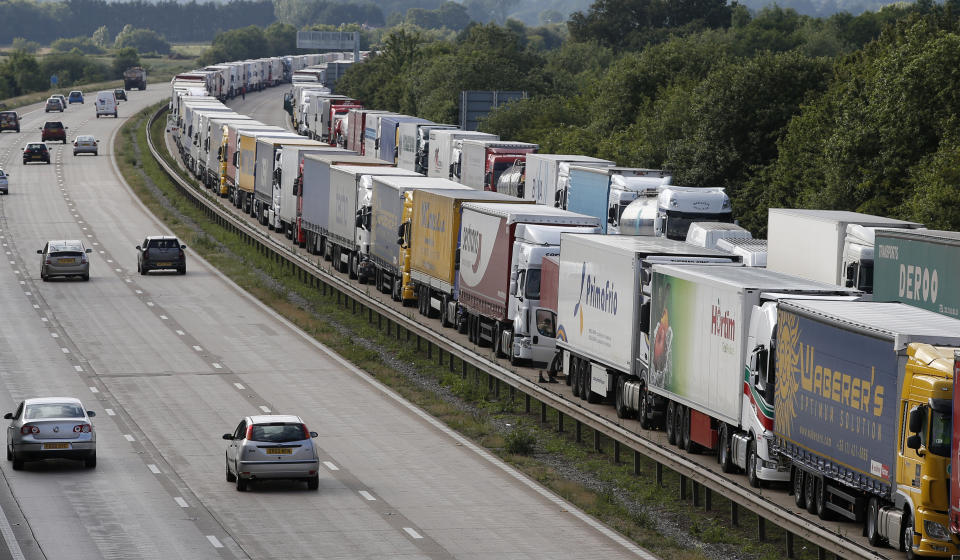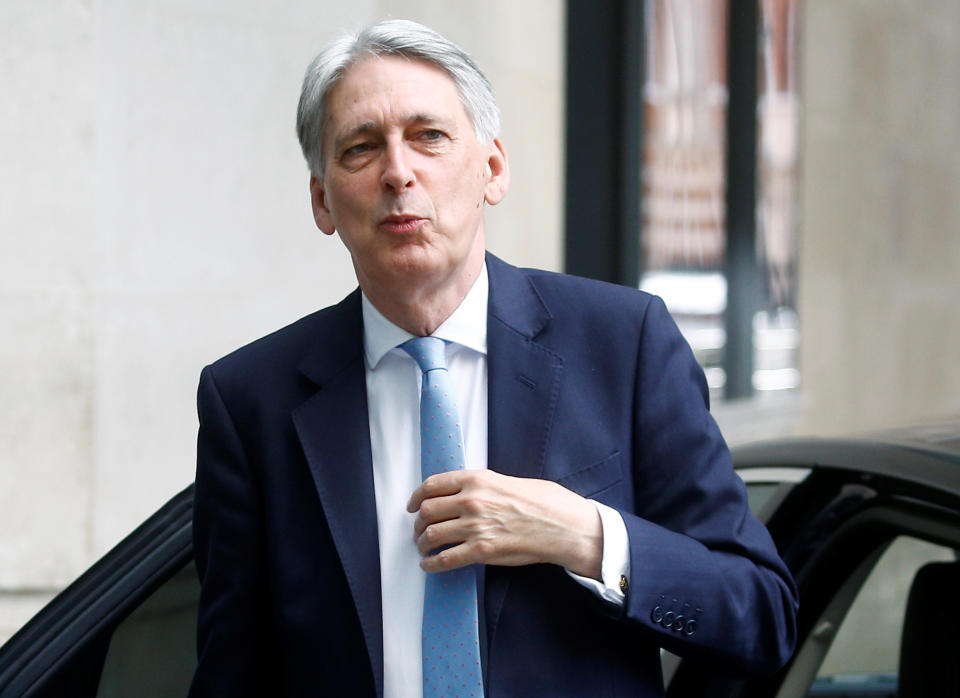Four times politicians lied about 'Operation Yellowhammer'

The Government has been forced to release its own planning documents setting out the risks of a no-deal Brexit.
The “Operation Yellowhammer” document outlines the risk of food, medicine, and fuel shortages if Britain leaves the European Union on October 31 without a deal.
It also claims that a no-deal Brexit could trigger major hold-ups at channel ports, electricity price increases, delays of up to two and a half days at Dover port and public disorder.

The release of the documents has been the subject of furious debate, with opposition MPs accusing the government of trying to hide the reality of what would happen in the event of a no deal.
Ministers say they are working to mitigate the risks. However, publication of the document has exposed government politicians for telling untruths about its content.
Here are four times politicians lied about Operation Yellowhammer:
'An old document'
When the Yellowhammer papers were first leaked to the Sunday Times on 18 August, Michael Gove, the Chancellor of the Duchy of Lancaster, claimed they were an “old document”.
However, it has subsequently been revealed that the six-page dossier document was dated August 2 - just two weeks before they were revealed, and a week after Boris Johnson became Prime Minister.
Former Tory MP, Sam Gyimah, said the document was “not out of date”.
The leaked document wasn’t out of date. This isn’t project fear. It is a sober assessment of what could happen. No deal is not ‘vanishingly inexpensive’ or a ‘bump in the road’. This is only a part of the chaos and long term damage our country would suffer. We must stop this. https://t.co/uGE5LjaPp1
— Sam Gyimah MP (@SamGyimah) September 11, 2019
Gyimah is one of the Tory rebels who had the Conservative whip removed earlier this month after voting against the Boris Johnson government.
Philip Hammond blamed for leak

After the documents were leaked, Downing Street briefed they had been deliberately made public by former chancellor, Philip Hammond.
However, the dates of the papers meant he did not have access to them before leaving government.
Mr Hammond said the document could subsequently not have been leaked by any former minister.
“It would not therefore have been available to any former minister who is not serving in the current administration,” he wrote to the PM, demanding an official apology for the suggestion he was responsible.
No food shortages
One of the most cited claims about a no-deal Brexit is that fresh food shortages could occur.
However, Mr Gove told the BBC’s Andrew Marr earlier this month that there would be no shortages of fresh food under a no deal.
That, however, directly contradicts the document.
A spokesman for the British Retail Consortium said food shortages would happen if Britain crashed out of the EU.
“It is categorically untrue that the supply of fresh food will be unaffected under a no-deal Brexit.
“The retail industry has been crystal clear in its communications with government over the past 36 months that the availability of fresh foods will be hit as a result of checks and delays at the border.”

Base case vs worst case
Ministers have not been entirely consistent over whether or not “Operation Yellowhammer” is an expected outcome or a worst-case scenario.
Michael Gove said in a public select committee hearing that Yellowhammer did not use the phrase “base case” or “base scenario”.
Here is Michael Gove contradicting himself before the exiting the EU select committee last week - admitting Yellowhammer does say “base scenario” after denying it first pic.twitter.com/qxewNsHOfD
— Rosamund Urwin (@RosamundUrwin) September 11, 2019
However, he was forced to change that statement later on in the hearing after being challenged by the committee chair, admitting that it did say “base scenario”.
It is now being reported that a further document known as ‘Black Swan’ has been written, setting out a worst-case scenario under no deal.
On Friday, after the papers were released, Defence Secretary Ben Wallace said that, regardless, the Government was planning “every day” to mitigate the potential effects of a no-deal.
Speaking to BBC Radio 4’s Today programme, Mr Wallace said Yellowhammer is a “planning assumption”, but stressed that it is only what might happen if the Government was to do nothing to mitigate it.

 Yahoo News
Yahoo News 

